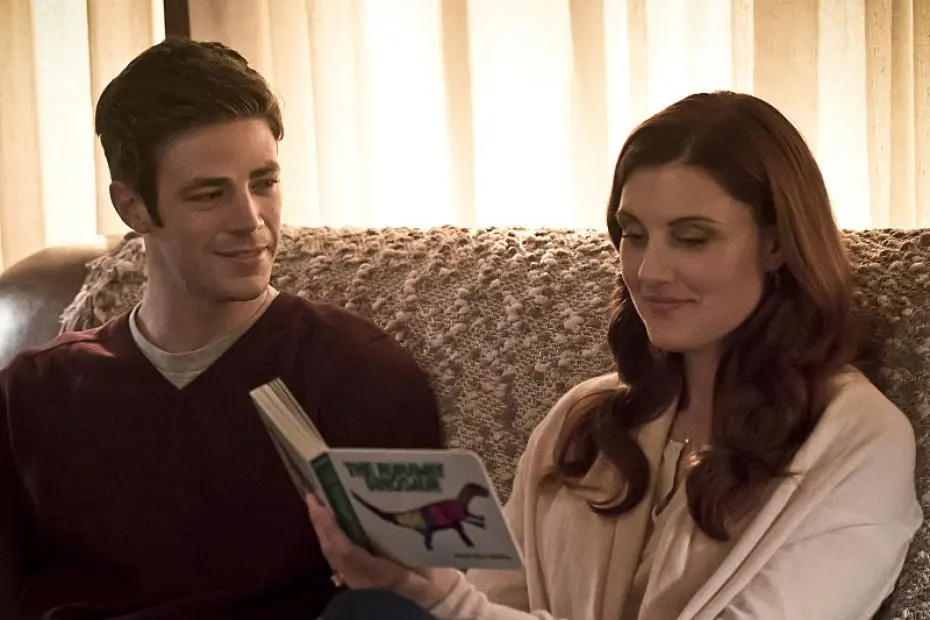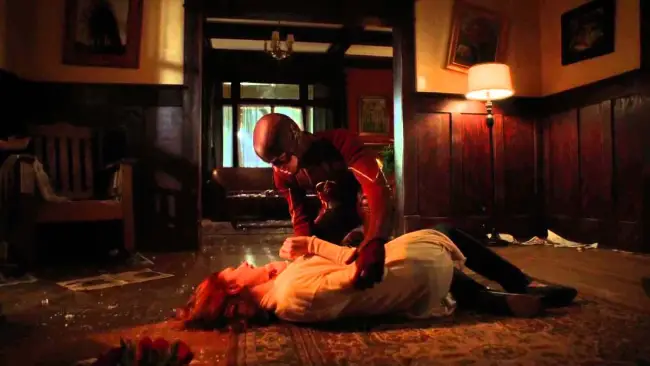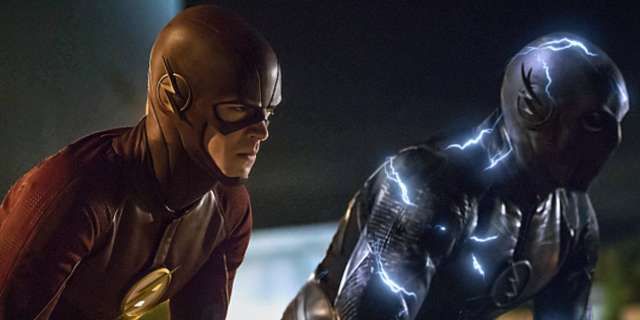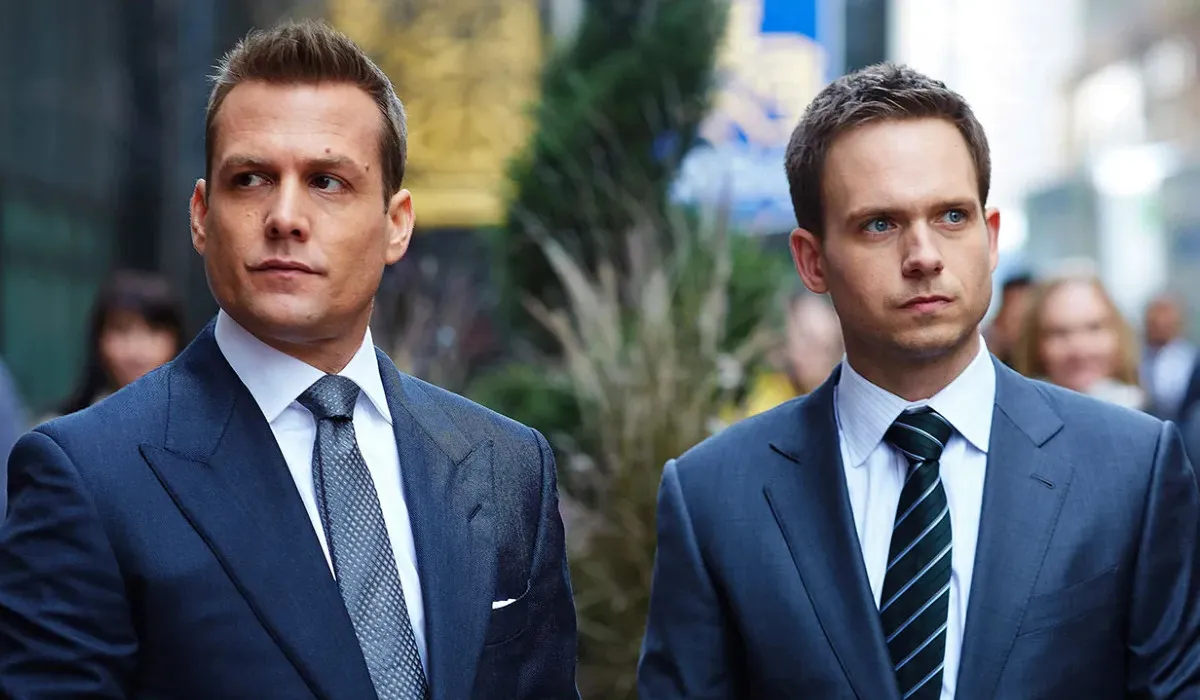**SPOILERS if you’re not caught up to the end of The Flash, Season 2**
“You’re an orphan. Of course! I’m an orphan, God I wish there was a war so we could prove that we’re worth more than anyone bargained for…” – Alexander Hamilton, Hamilton
You don’t really think about applying the word “orphan” to adults, but it’s not a term that’s reserved for young children. Adults can be orphans, and I guess I am one. My mother died in my mid-twenties thanks to complications from diabetes. My father died eight years later, when I was in my mid-thirties. Both were elderly, and both had health problems. Suddenly, by 35, I found myself in a world without either of my parents–like Barry Allen, a.k.a. The Flash.
I felt all the expected feelings — sadness, anger, confusion — but never in an expected order or mode of expression. For years, I worked on navigating what my life would be like without my parents in it. Grief takes a long time to process, and it manifests in strange ways. As I wrote in a piece three years after my mother’s death, called “Hey Mama: Kanye West, Neil Gaiman, and the Grief Made Manifest,”
Your grief will manifest in ways you never expected. It won’t always be clawing-your-eyes-out, sobbing grief. It won’t always be stoic, honorable grief either. Sometimes, it will be you yelling at the person behind the counter at Dunkin’ Donuts, because they accidentally didn’t give you the right change. Other times, it will be you ignoring your friends, or snapping at them just for being near you whilst having fun and joking around. You might do something incredibly risky just to see if you can, just to see if you’ll come out of it alive. This won’t all happen neatly immediately after the death, either. It will sneak up on you a year later after you’ve quit seeing a therapist because you thought you were all better and really why shell out the money for something you don’t need anymore.
This, too, is OK. Expect it, so it doesn’t blindside you, but know that you won’t be able to control it no matter what you do. Your mind, and your body, and your heart are going to demand that you grieve, whether you let it or not. And if you’re someone like me, who doesn’t like to cry in front of people, who doesn’t like being a burden on those she loves, and who tends to go about things with a stiff upper lip and a “suck it up and deal” attitude, the demands of your grieving will force you to grieve whether you want to or not. And sometimes, you’ll do very stupid things indeed.
I wrote this trying to explain Kanye West’s erratic behavior years ago, which culminated in his inexcusable hijacking of Taylor Swift’s moment at the MTV Video Music Awards. It could equally apply to Barry Allen.
There are several important differences between the way I lost my parents and the way Barry loses his parents. His mother died when he was a young boy. My mother died when I was already an adult. Barry watched his mother die at the hands of a villain. I watched my mother die unconscious after they pulled the plug on her life support. Losing a parent is never easy, no matter when it happens, but it’s understandable that, if you suffer that loss as a child, that loss becomes part of your programming in a way you’re less equipped to get over than you are as a grown-up.
Throughout The Flash, we’ve watched as the death of his mother has fueled Barry’s heroism, and not always in the healthiest ways. In Season 1 of the show, Barry relentlessly pursued the Reverse Flash, sometimes in opposition to what his friends at S.T.A.R. Labs were advising. This culminated in the creation of the wormhole at the end of the season. Barry helps to create it in part to save his mother, but the wormhole ends up becoming a black hole, which ends up taking Ronnie’s life. It’s also the cause of all the breaches to the other Earths that we begin to explore in Season Two.
At the top of Season Two, Barry seems to have learned a lesson about how his desire to have his mother alive again could cause harm if acted upon recklessly, but he came to the wrong conclusion about what to do about it. Rather than relying on his friends more, he pulls away from them, falling into the martyrdom trap and taking everything onto himself so that “no one else has to die.” He becomes increasingly stubborn and insular, his desire to defeat Zoom becoming all-encompassing.
It’s in Season 2, Episode 21, “The Runaway Dinosaur,” that we begin to see a truly positive change in Barry. After he attempts to get his powers back by allowing Wells to recreate the particle accelerator explosion, he gets zapped into the Speed Force, which we discover is very similar to The Prophets (or the “Wormhole Aliens,” depending on your belief system) on Deep Space Nine. Anyway, the Speed Force is a sentient entity that communicates with Barry through familiar people, images, and places.
It is through the Speed Force that Barry is finally able to come to terms with his mother’s death. In a couple of heartbreaking scenes, Barry is able to express his feelings toward his mother, and hear back from her how proud she is of him, and that it’s okay for him to let go of her. It’s an important lesson that all orphans need to learn if they are to go on and become heroes in whatever ways they’re meant to.
It was an episode that resonated with me, because after years of thinking that I’d accepted what happened to my mother, there came a point when I realized that it continued to affect me when least expected, and that acceptance is an ongoing, conscious choice. It’s not something you do once and never think about again. It’s something you’re always doing.
I was so proud to see Barry finally take that big step toward acceptance. As he allowed his “mother” (aka the Speed Force) to read him The Runaway Dinosaur and said goodbye to her to rejoin his team and stop Zoom, that was the most heroic act he’d performed on the show up until that point. Sure, he’d stopped bad guys and saved lives, but to me, he was never more heroic than when he chose to do the most difficult thing he’s ever had to do for the sake of others. He chose to let his mother go.
My parents died eight years apart. My mother’s death hit me hard 1) because I was younger then, and 2) because she was lucid right up until she died. I felt her absence much more because of that. Meanwhile, when my father died — even though he was the parent I was closest to in life — he’d been suffering with dementia for years. I felt like the father I knew and loved had departed years before. That, coupled with the fact that I’d already been through one big loss, made the second big loss a little easier. It was still hugely painful, but I was able to manage it, because of experience and the lessons I’d learned from my first grieving process.
In the last two episodes of The Flash Season 2, “Invincible” and “The Race of His Life,” I was looking forward to seeing Barry 2.0 take on Zoom with this new self-awareness! I was sure that this peace he’d found would make it that much easier for him to work with his friends, and they would tackle the baddie together! But that’s not exactly how it shook out.
His friends started crapping on his confidence in the fact that everything was going to work out. Now, I understand the need to be practical. I also understand that going into a battle assuming you’re going to lose has helped exactly no one. I was confused as to why the show was presenting the progress that Barry made as a flaw because, to me, he didn’t seem overconfident, he just had reason to have faith in the Speed Force. But that wasn’t enough for the S.T.A.R. Labs team. They continually warn Barry against “going too far,” which annoyed the hell out of me. Then, thanks to the team’s plan to take out all Earth-2 folks taking out everyone except Zoom, Zoom ends up killing Barry’s dad in front of him.
Aw, fuck.
Yes, this is hugely unfair. Yes, it sucks that just as he got his father back, Barry had him taken away again. I’d expect Barry to grieve. To be furious, heartbroken, etc. However, he’s also not a child. Since his mother, he’s experienced loss of all kinds. He’s watched friends die. The thing is, so has everyone else, and everyone else has somehow found it in themselves to pick up the pieces. Everyone else has given each other the space and time to pick up the pieces. Yet, for some reason, Barry doesn’t count?
Team S.T.A.R. Labs’ concern trolling eventually manifests as them locking Barry in their metahuman prison “for his own good” rather than allow him to race Zoom, as they see that as “recklessness” on his part. They come up with their own plan that they end up botching, and Joe gets pulled into Earth 2 with Zoom. Wally releases Barry to save his father, and… Barry ends up racing Zoom, which is what he wanted to do in the first damn place!
This is what happens when other people in your life aren’t ready for the progress you’ve made in therapy, y’all.
ANYway, Barry defeats Zoom by using the peace he found with the Speed Force, which allowed him to be able to create a Time Remnant who gives his life to stop the magnatar Zoom would’ve used to destroy all other Earths, and that brings the Time Wraiths that take Zoom away. Yay, right?
Except not yay. And here’s where I got infuriated. The episode was about as perfect as it could’ve been…until the last few minutes where Barry gives into his anger about his father’s death and goes back in time to actually prevent his mother’s death, which he does, destroying the timeline. I wanted to throw things at the television.
One of the reasons I loved The Flash was that I thought it had been such an honest, accurate depiction of grief. Grief makes you a little crazy, but it’s possible to work through it and come out whole on the other side. The entire season had built up to Barry finally being in a place where he could move on, only to suddenly have him do a 180 and fall back into the same old way of thinking that puts having his mother back over the good of an entire timeline.
I sat there thinking, “MUST BE NICE. Not all of us have the power to go back in time and prevent our loved ones from dying! Some of us have to figure out a way to LIVE WITH IT!” To me, Barry Allen was a hero on this show, because he’d worked through his grief and come out better on the other side. Now, in the Season Two finale, it felt like that was being taken away.
Now, I’m well aware that this is likely going to be leading into a TV retelling of the Flashpoint event in DC Comics, wherein Barry causes a whole lot of trouble by doing exactly what he did at the end of Season Two, going back in time to save his mother. (Meanwhile, his dad’s somewhere in the afterlife going “Gee, thanks!”) I’m sure it will be interesting, and I’ll definitely be watching.
I only wish that quality storytelling on this show didn’t have to come at the expense of Barry’s progress as a character. He came so far in his acceptance. He grew up. Now, it feels like that’s all been shattered just so they could “do Flashpoint.” Heroism isn’t just about risking one’s life, and strength isn’t just about physicality. There is emotional strength, and there is the heroism involved in putting other people’s needs before your own by managing your pain.
As it is, I don’t have superpowers, so I’ll just have to muddle through my grief like a normal person. It would have been nice if The Flash could’ve been an example of that, if he could have been someone I looked to and thought, “Even superheroes have to manage their grief and push forward.” It really would have.
Want more stories like this? Become a subscriber and support the site!
—The Mary Sue has a strict comment policy that forbids, but is not limited to, personal insults toward anyone, hate speech, and trolling.—
Follow The Mary Sue on Twitter, Facebook, Tumblr, Pinterest, & Google+.











Published: Jun 7, 2016 05:33 pm